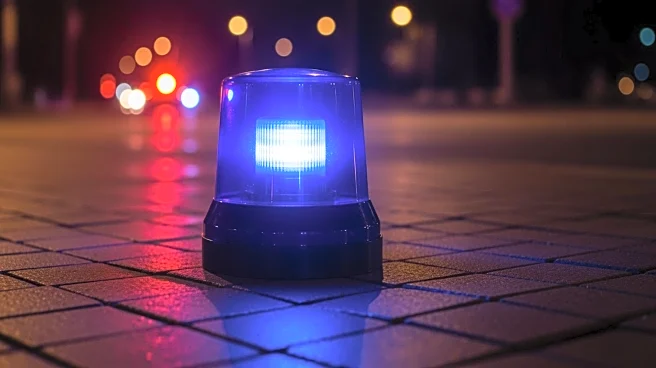What's Happening?
Peru's capital, Lima, is experiencing increased military and police presence following the declaration of a state of emergency by President José Jerí. The decree suspends several constitutional rights,
including freedom of assembly, in response to rising crime rates. The state of emergency follows violent protests demanding Jerí's resignation, which resulted in casualties. The government aims to curb crime, but residents express skepticism about the effectiveness of such measures.
Why It's Important?
The state of emergency in Lima highlights the challenges faced by governments in addressing crime while balancing civil liberties. The suspension of constitutional rights raises concerns about potential human rights violations and the impact on democratic processes. The situation in Peru reflects broader issues of governance and public safety in Latin America, where crime rates have been rising. The government's actions may influence public opinion and political stability in the region.
What's Next?
The effectiveness of the state of emergency will be closely monitored, with potential adjustments to policies based on public response and crime statistics. Political leaders and civil society groups may advocate for alternative approaches to crime prevention that prioritize human rights. The international community may also weigh in, offering support or criticism of Peru's handling of the situation. Long-term solutions to crime and governance challenges will be essential for stability.
Beyond the Headlines
The situation in Peru raises ethical questions about the balance between security and civil liberties. The government's approach may set precedents for other countries facing similar challenges. The role of military and police in civilian areas can affect public trust and perceptions of authority. The broader implications for democracy and governance in Latin America are significant, as countries navigate complex socio-political landscapes.











